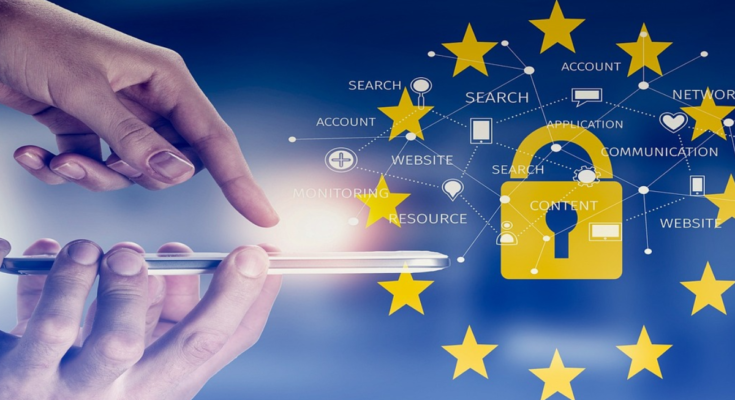Privacy Liability Insurance: In an era where data breaches and privacy concerns dominate headlines, Privacy Liability Insurance has become a critical tool for businesses to protect themselves from financial and reputational risks. With increasing regulatory scrutiny and the rising cost of data breaches, companies must take proactive measures to safeguard sensitive information. Privacy Liability Insurance offers a robust safety net to manage the aftermath of privacy violations and cyber incidents.
What Is Privacy Liability Insurance?
Privacy Liability Insurance is a specialized form of coverage designed to protect organizations from legal, financial, and reputational consequences arising from data breaches, privacy violations, and other cybersecurity incidents. This insurance helps companies manage risks associated with the loss or theft of sensitive data, such as personal identifiable information (PII), protected health information (PHI), and payment card information (PCI).
Privacy Liability Insurance often forms part of broader cyber liability insurance policies but focuses specifically on privacy-related exposures.
Importance of Privacy Liability Insurance
- Increasing Cyber Threats: Cybercrime is on the rise, with businesses facing threats like ransomware, phishing, and data breaches. The financial impact of these incidents can be catastrophic without adequate coverage.
- Regulatory Compliance: Laws like GDPR, HIPAA, and CCPA impose strict requirements on businesses to protect personal data. Non-compliance can result in hefty fines and penalties.
- Reputation Management: Data breaches can erode customer trust. Privacy Liability Insurance often includes public relations support to mitigate reputational damage.
- Litigation Protection: Businesses may face lawsuits from affected individuals or regulatory bodies. Insurance provides legal defense and covers settlement costs.
- Financial Safeguard: The average cost of a data breach in 2023 was $4.45 million. Privacy Liability Insurance helps manage these costs effectively.
What Does Privacy Liability Insurance Cover?
1. First-Party Coverage
Covers expenses incurred directly by the insured organization, including:
- Incident Response Costs: Forensic investigations, data recovery, and crisis management.
- Notification Costs: Expenses for informing affected customers or employees about a data breach.
- Credit Monitoring Services: Costs to provide credit monitoring to individuals impacted by a breach.
- Business Interruption: Compensation for lost income due to operational downtime caused by a cyber incident.
2. Third-Party Coverage
Protects against claims brought by third parties, such as:
- Regulatory Fines and Penalties: Coverage for fines imposed by regulatory authorities for privacy law violations.
- Lawsuit Defense and Settlements: Legal defense costs and settlement payouts for claims filed by affected parties.
- Vendor Breach Liability: Liability arising from breaches caused by third-party vendors handling sensitive data.
3. Additional Coverages
- Reputational Damage: Assistance with public relations efforts to rebuild trust and manage the organization’s image.
- Cyber Extortion and Ransomware: Coverage for ransom payments and associated costs.
- Privacy Event Costs: Expenses related to addressing privacy law violations or breaches.
Who Needs Privacy Liability Insurance?
Privacy Liability Insurance is essential for any organization handling sensitive data. Key industries include:
- Healthcare: Protects against breaches involving patient data and HIPAA violations.
- Financial Services: Covers risks related to customer financial data and regulatory compliance.
- Retail and E-Commerce: Addresses data theft risks associated with credit card transactions and customer information.
- Technology Companies: Safeguards against liabilities arising from software vulnerabilities or cloud-based services.
- Education: Protects against breaches affecting student records and educational data.
- Legal and Professional Services: Ensures coverage for law firms and consultancies handling confidential client information.
Benefits of Privacy Liability Insurance
- Comprehensive Financial Protection: Mitigates the financial impact of data breaches, covering legal fees, fines, and other related costs.
- Regulatory Compliance Support: Provides resources to ensure compliance with privacy laws and regulations.
- Reputation Management: Includes public relations support to help businesses recover from reputational damage.
- Risk Mitigation Tools: Many policies offer access to cybersecurity experts and risk management tools to prevent future breaches.
- Business Continuity: Helps organizations maintain operations during and after a privacy incident.
Challenges of Privacy Liability Insurance
- Exclusions: Policies may exclude coverage for intentional misconduct, pre-existing vulnerabilities, or third-party breaches.
- Complexity of Coverage: Understanding the scope and limitations of coverage can be challenging for businesses.
- Premium Costs: Premiums can be expensive, especially for high-risk industries or organizations with a history of data breaches.
- Policy Limits: Large-scale breaches may exceed policy limits, leaving businesses exposed to additional financial losses.
How to Choose the Right Privacy Liability Insurance
- Assess Data Risks: Identify the types of data your organization handles and evaluate potential vulnerabilities.
- Understand Coverage Needs: Determine whether you need first-party, third-party, or comprehensive coverage.
- Review Policy Terms: Carefully examine exclusions, deductibles, and policy limits.
- Work with Experts: Consult with insurance brokers or legal advisors specializing in cyber liability to find the best policy.
- Consider Industry-Specific Needs: Ensure the policy addresses risks unique to your industry.
Cost of Privacy Liability Insurance
The cost of Privacy Liability Insurance depends on several factors:
- Company Size: Larger organizations with more extensive data operations typically pay higher premiums.
- Industry Risk: High-risk sectors like healthcare and finance face higher costs.
- Claims History: Businesses with a history of data breaches may face increased premiums.
- Coverage Limits: Higher coverage limits result in higher premiums.
- Security Measures: Companies with robust cybersecurity practices may qualify for lower rates.
Claims Process for Privacy Liability Insurance
-
- Immediate Notification: Notify your insurer as soon as you become aware of a data breach or privacy violation.
- Engage Incident Response Team: Utilize insurer-provided resources to manage the breach and mitigate damages.
- Submit Required Documentation: Provide evidence of the breach, including forensic reports and financial losses.
- Claim Evaluation: The insurer will assess the claim’s validity and determine coverage applicability.




